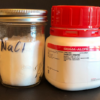Food selections for both legs of the study were patterned after a “typical American diet”as defined by the United States Department of Agriculture (USDA). In addition, identical (or extremely similar) foods chosen for each leg needed to be widely available in the United States in a practical manner convenient to other investigators. Absent an unrealistically […]
Archive | Best Practices Index

Basic Scientific Lab Standards — Best Practices for a Replicable Dietary Intervention
NOTES: All of the best practices described below have been developed and hands-on tested in an actual dietary intervention study as feasible and minimally disruptive in a commercial-standard kitchen. The kitchen must be treated as a laboratory; a recipe is a protocol; foods are reagents; every item used in preparation and cooking is equipment and […]

Why a Dormitory Setting is Needed for Replication and Valid Causal Conclusions in Dietary Intervention Studies
Non-food-exposures (NFEs) — including environmental conditions — are so numerous and variable that a precise replication of those is impractical and, perhaps, impossible. See: Reducing Non-Food Exposures in dietary intervention studies. Plastic contamination is also inescapable. Plastic micro-and nanoparticles — as well as the chemical compounds used to produce the polymers — are ubiquitous in […]

Indexing in Progress and Regularly Updated
Please be patient. A massive amount of information and photos on apparatus, food sourcing, preparation and other protocol-related data are being uploaded as swifty as possible given limited resources. This ad-free article is made possible by the financial support of the Center for Research on Environmental Chemicals in Humans: a 501(c)(3) non-profit. Please consider making a tax-deductible […]
Replicability: Additional sourcing, preparation, and best practices
This page has been replaced by: Best Practices Index This ad-free article is made possible by the financial support of the Center for Research on Environmental Chemicals in Humans: a 501(c)(3) non-profit. Please consider making a tax-deductible donation for continued biomedical research. This is an ongoing index links illustrating techniques and actions developed and taken to increase the […]